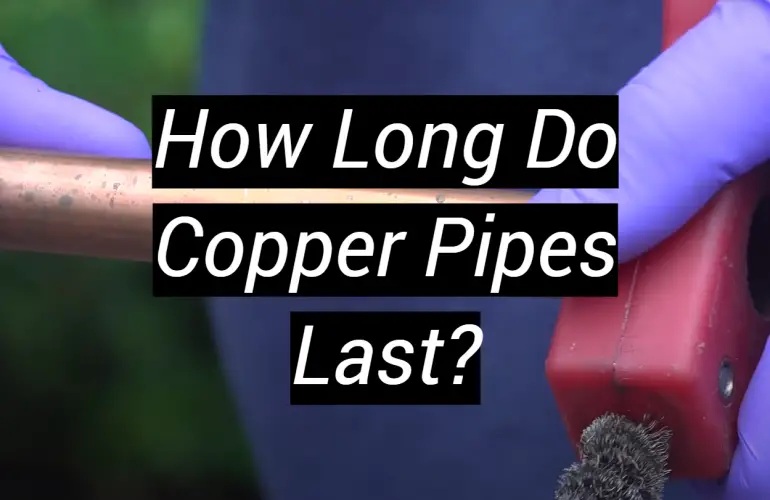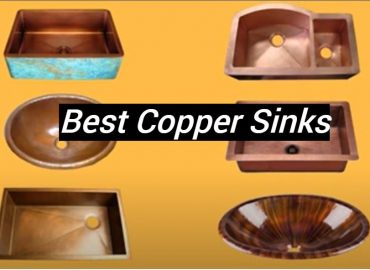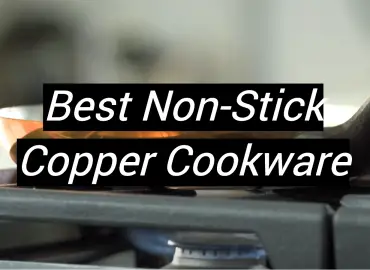If you’re a homeowner, then you know that plumbing is one of the most important aspects of your home. You need to make sure that your pipes are in good condition so that you can avoid water damage and other costly repairs. This article will discuss the longevity of copper pipes and how to extend their lifespan. It will also provide some tips on how to detect signs of wear and tear so that you can address any issues before they become bigger problems.
What are Copper Pipes used for?
Copper pipes are a popular choice for plumbing applications due to their excellent corrosion resistance. One of the most common uses for copper piping is in hot and cold water distribution systems. Copper pipes are also used in heating and cooling systems, as well as drainage systems. Copper’s malleability makes it ideal for bending into tight spaces, making it ideal for use in areas with limited space or unusual shapes. Additionally, copper pipe connections can be easily sealed using solder or compression fittings, making them an effective choice for home improvement projects such as installing dishwashers or bathtubs. Finally, copper is much more durable than other materials used in plumbing, so it can withstand high temperatures and pressure without corroding quickly. Overall, copper piping is an excellent choice for both commercial and residential plumbing applications.
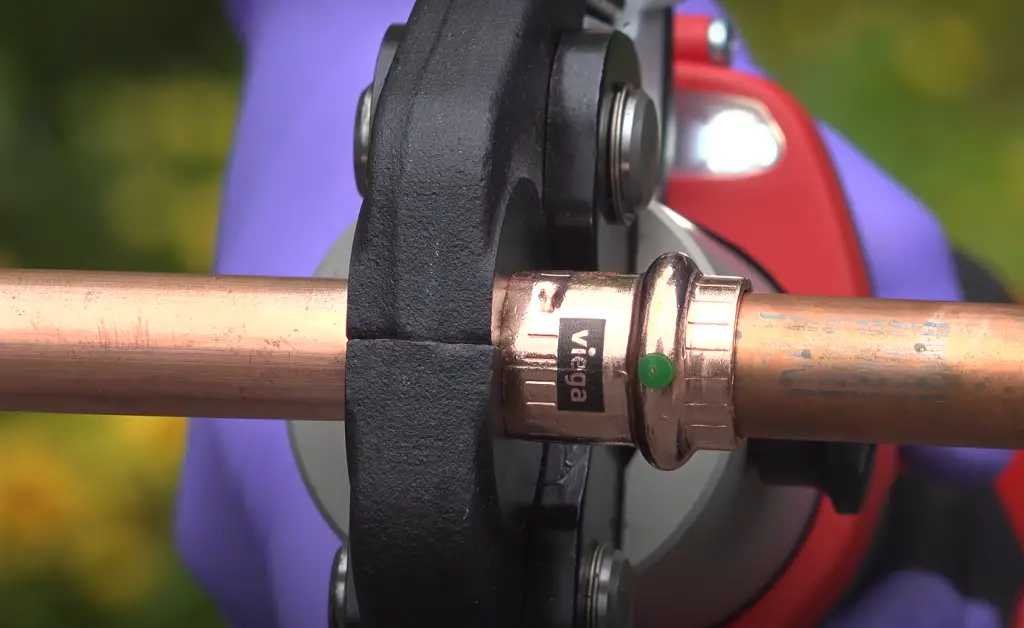
Another use of copper pipes is in the electrical industry. Copper is a very good conductor of electricity, making it ideal for wiring systems in homes, businesses, and other locations. Copper wires are used to distribute power throughout buildings and also to provide a safe route for electricity from a power source to its various outlets. Copper cables can also be used in telecommunication systems, as they can transfer data quickly and easily with minimal electromagnetic interference.
Additionally, because copper does not corrode quickly or attract birds or rodents as metal wires do, it makes an ideal material for low-voltage circuits such as those found in alarm systems or computers. As such, copper is often used in the manufacture of circuit boards and other electronic components.
Finally, copper can also be used to make decorative items such as jewelry or artwork. Copper wire can be manipulated into intricate shapes and patterns, making it a popular choice for creating unique art pieces or jewelry pieces. The metal’s ability to take on different colors when exposed to oxygen makes it an attractive material for crafting these items. Furthermore, its malleability makes it easy to work with, allowing you to create almost any shape you desire.[1]
Pros of copper pipes
Copper pipes are 100% recyclable and sustainable
Copper pipes are a great choice for eco-friendly and sustainable plumbing systems. Copper is one of the few materials that can be recycled infinitely without any loss of quality.
As well as being recyclable, copper pipes are also made from abundant natural resources giving them an incredibly low environmental impact.Copper pipes are durable and require less maintenance
The strength and durability of copper make it an ideal material for plumbing. Copper is resistant to corrosion which means that it won’t break down over time like other materials such as PVC or plastic piping will. It’s also much more resistant to extreme temperatures compared to other metal pipes, meaning it can handle hot and cold water without any issues. In addition, copper pipes require minimal maintenance, so once they’re installed they can last for up to 50 years with no issues.
Copper pipes are safe and non-toxic
Another great benefit of copper pipes is that they are completely non-toxic and safe for people. Copper is naturally antimicrobial which means that it prevents bacteria from multiplying in the water supply.
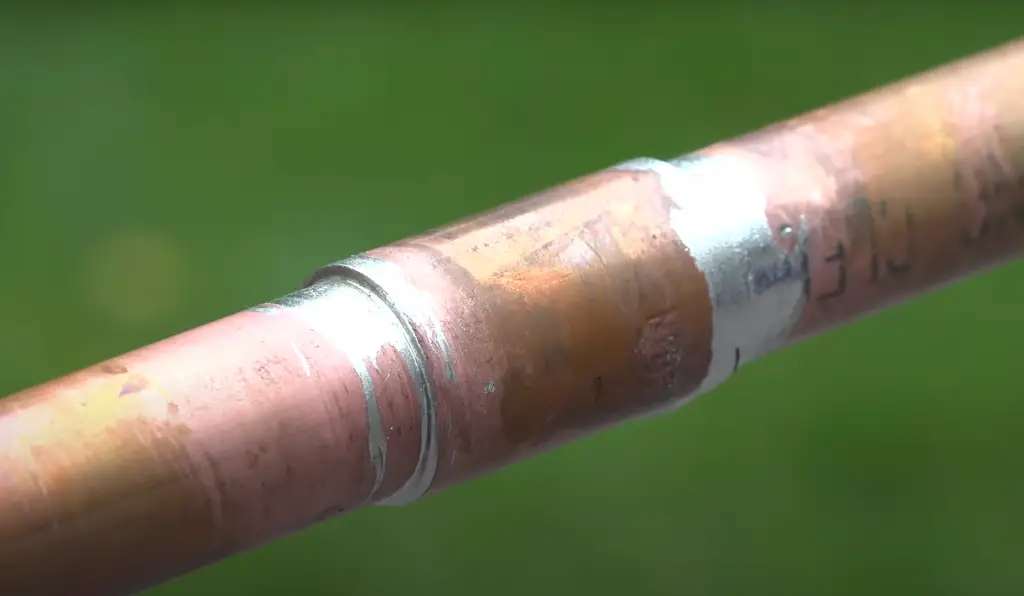
This makes it a much safer option than PVC as well as other metal piping materials such as steel or iron which often contain lead or other toxic chemicals.
Copper pipes have a good thermal conductivity
Copper pipe has excellent thermal conductivity properties which make them ideal for high-temperature plumbing applications. This makes copper pipes a great choice for hot water systems, which can often experience extreme temperatures. The thermal conductivity of the copper means that it can quickly transfer heat across its surface without heating up too much and damaging other components in the pipe system.
Very lightweight for a metal
Despite being a metal, copper is quite lightweight when compared to other materials such as steel. This makes it easier to install and work with than heavier metals, as it requires less support and can be maneuvered more easily. Additionally, copper pipes are much quieter than other types of piping which makes them ideal for residential plumbing applications.
As a noble metal, copper pipes are corrosion-resistant
Copper is classified as a noble metal, meaning that it is largely resistant to corrosion. This means that it won’t rust or degrade like other types of piping materials, making it an ideal choice for plumbing systems in particularly wet environments. Copper pipes also contain very little carbon which makes them more difficult for bacteria to colonize and spread.
Very common and long-used material
Copper has been used for plumbing applications for centuries and is one of the most common materials used in the construction industry. This means that copper pipes are widely available with a variety of sizes, shapes, and thicknesses to choose from. Additionally, it’s easy to find experienced plumbers who know how to work with copper pipes due to their long-standing popularity.
Copper pipes don’t contaminate water supplies with harmful chemicals the way lead and cast-iron pipes do
One of the major benefits of copper pipes is that they don’t leach harmful chemicals into the water supply like lead piping or cast-iron piping can. This makes them much safer for people to use and prevents potential health issues associated with contaminated water supplies [2].
Cons of copper pipes
Copper pipes can add a slightly metallic flavor to drinking water
This is a result of the leaching of small amounts of copper into the water. Copper can also cause staining in sinks and fixtures that contain it, although this issue can be minimized through proper installation.
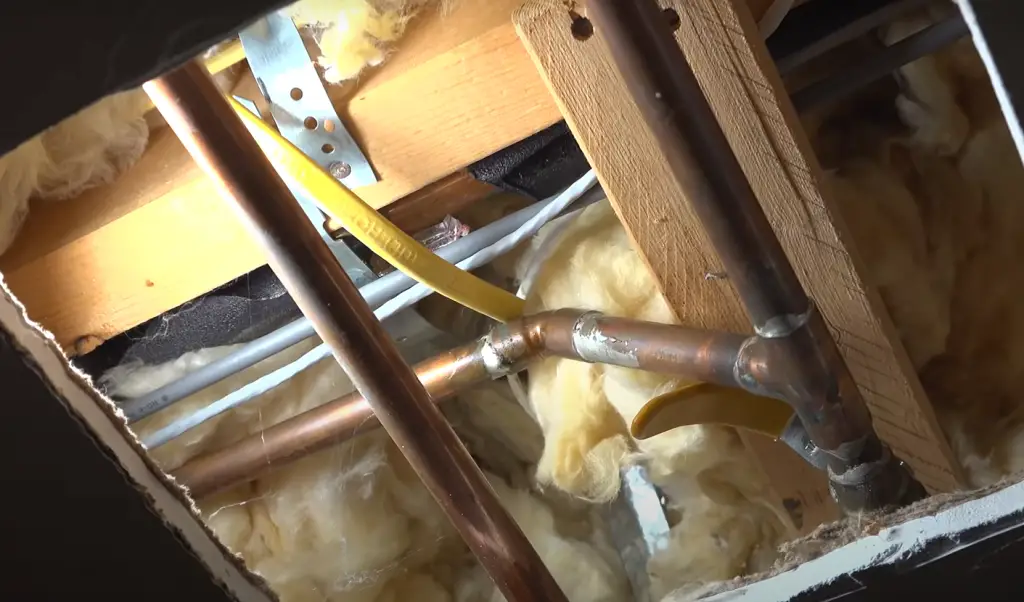
Copper pipes are also more expensive than many other types of piping, making them an impractical choice for some people. Additionally, copper is highly susceptible to corrosion over time, which could lead to leaks or other problems with your plumbing system down the road.
More expensive than PVC, PEX, and other non-metal piping materials
Copper piping is more expensive than PVC, PEX, and other non-metal piping materials. This can be a significant concern for some people when installing plumbing in their homes. Additionally, copper pipes are difficult to work with due to their stiffness and weight; this makes it more challenging for the average person to install them without professional help.
Internal corrosion is possible depending on the contents of the water flowing through the pipe
Internal corrosion is a possibility when using copper pipes, depending on the contents of the water flowing through them. If acidic or alkaline water flows through copper pipes, it can cause corrosion over time and lead to leaks or other issues with your plumbing system. This can be minimized by installing a corrosion inhibitor in the piping system, but this may not be a practical solution for everyone. Additionally, copper is still susceptible to external corrosion due to environmental factors such as high humidity levels or exposure to chemicals like acids.
Susceptible to freezing
Copper pipes are also more susceptible to freezing than other types of pipes, making them a less reliable choice in colder climates. When exposed to freezing temperatures, these pipes could burst and cause costly damage to your plumbing system. This issue can be minimized by proper insulation of the pipes, but this is an extra expense to consider when installing copper piping in colder areas.
DIY copper pipe installations and repairs are complicated and ill-advised
Due to the complexity of copper pipe installation and repairs, DIY projects involving copper pipes are ill-advised. Even minor mistakes can lead to leaks or other issues down the road, so it’s best left to professional plumbers. Additionally, any repairs that need to be made will require specialized tools and knowledge of working with copper pipes; this is not something that most homeowners can do on their own.
The 4 main types of copper pipes and how long each type lasts
M-type copper pipes
M-type copper pipes are one of the most commonly used types of copper pipe for residential plumbing. These pipes are made from a combination of copper alloy and other metals, such as zinc or tin. M-type copper pipes have long been known for their durability and longevity – they can last up to 50 years when properly maintained.
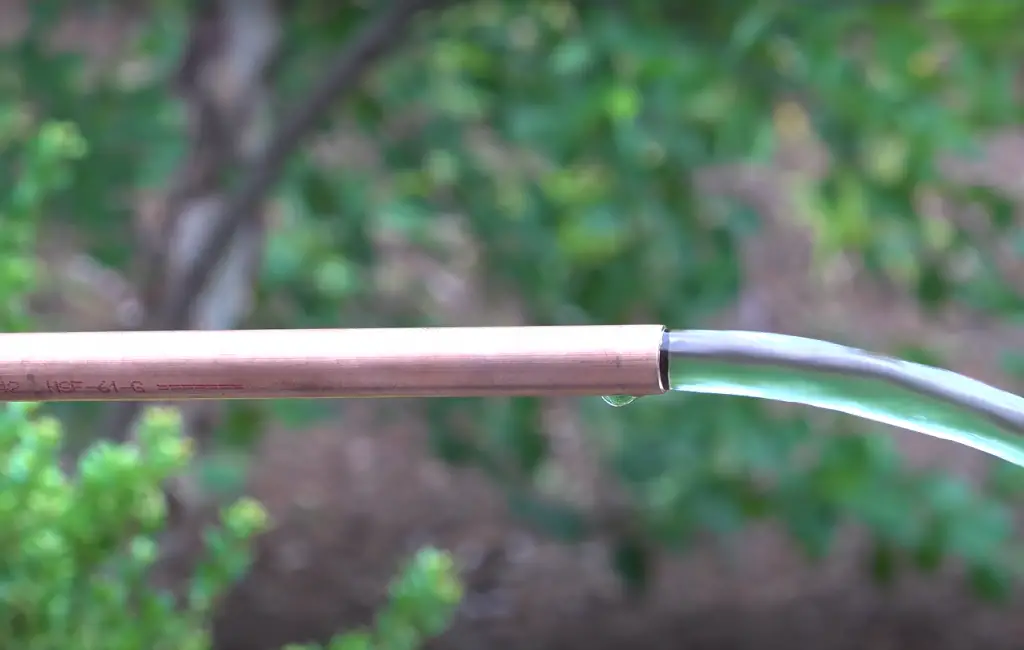
They are also relatively cost-effective and easy to install, making them popular with many homeowners.
L-type copper pipes
L-type copper pipes are a bit more expensive than M-type pipes, but they have the added benefit of being resistant to corrosion. This makes them ideal for areas with high levels of salt or acidity in the water. L-type copper pipes can last up to 70 years when properly maintained, making them an excellent choice for long-term projects.
K-type copper pipes
K-type copper pipes are another popular option for residential plumbing. These pipes are made from a blend of different metals, including nickel and zinc, which make them extremely durable and resistant to corrosion. K-type copper pipes can last up to 80 years when properly maintained – making them an ideal choice for those looking for longevity in their plumbing system.
P-type copper pipes
P-type copper pipes are the most expensive type of copper pipe, but they also offer the longest lifespan. These pipes are made from a blend of different metals and can last up to 100 years when properly maintained.
Rigid tubing vs flexible rolls
Rigid tubing is made from solid metal and cannot be bent or shaped. It is typically used in applications that require a very high level of durability, such as under-sink plumbing installations.
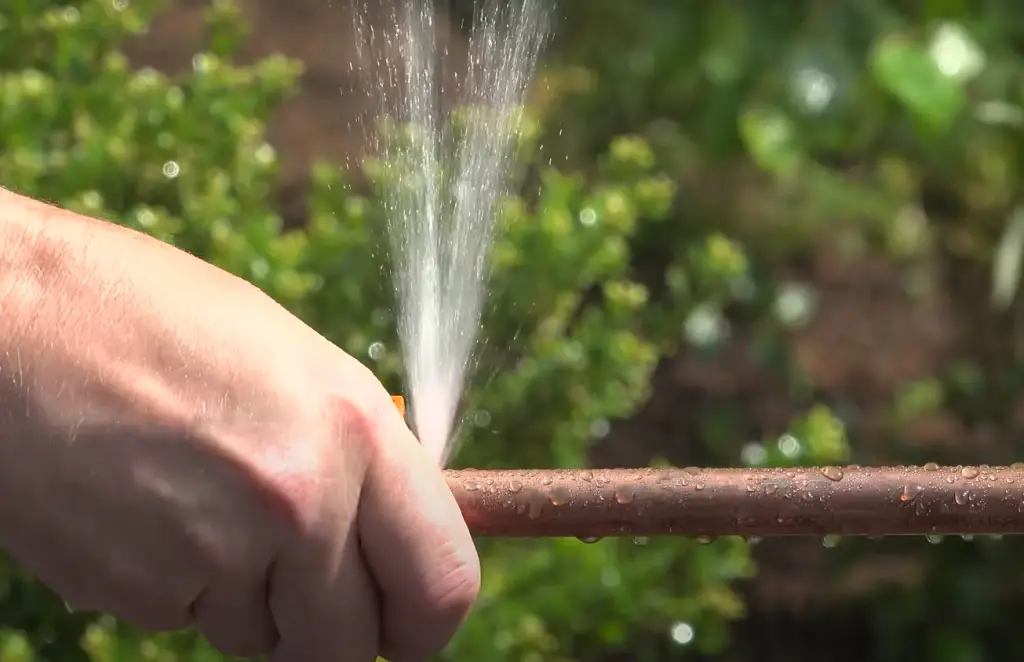
Flexible rolls are much more pliable than rigid tubing, making them easier to install in tight spaces. However, they are not as durable as rigid tubing and generally only last up to 30 years when properly maintained [3].
FAQ
Do copper pipes ever need to be replaced?
Yes, copper pipes can eventually need to be replaced. Factors such as corrosion, wear, and tear, or changes in water pressure can all lead to the need for a pipe replacement.
Additionally, having regular maintenance done on your copper pipes can help prevent future problems and increase the longevity of your plumbing system.Can copper pipes last 100 years?
Copper pipes can last up to 100 years if they are properly installed and maintained. Copper is a very durable material that can withstand extreme temperatures, corrosion, and other potential damages. However, over time the copper will eventually break down and need to be replaced. Regular inspections should be done on the piping system to ensure its longevity and prevent any issues from arising. Additionally, regular maintenance such as flushing or descaling can help increase the lifespan of your copper piping system.
What are the disadvantages of using copper pipes?
The main disadvantage of using copper pipes is their cost compared to other materials. Copper is typically more expensive than PVC or PEX piping which may deter some people from going with it for their plumbing needs. Additionally, copper pipes are susceptible to corrosion from acidic water which can lead to pipe clogs and leaks. Finally, the installation of copper piping requires special tools and equipment which may increase the overall cost of the project. For these reasons, it is important to weigh all your options before selecting a material for your plumbing needs.
Do copper pipes go bad?
Yes, copper pipes can go bad over time. Factors such as water pressure, corrosion, and wear and tear can all lead to the need for a copper pipe replacement. If your home has copper piping it is important to have an inspection of the system done regularly to ensure that your system is working properly. Additionally, having regular maintenance done on your copper pipes can help prevent future problems and increase the longevity of your plumbing system.
When should I replace my copper pipe?
If your copper pipe is showing signs of wear and tear, corrosion, or changes in water pressure it may be time to consider replacing it. Additionally, if your pipes are more than 50 years old you should have them inspected to determine if they need to be replaced. It is important to stay on top of regular maintenance for your copper piping system to ensure its longevity. If any problems arise with the system then it is best to contact a professional plumber to assess the issue and recommend the best course of action.
Why do plumbers still use copper pipes?
Plumbers still use copper pipes due to their durability, corrosion resistance, and ability to withstand high temperatures. Copper pipes can also be welded which makes it easier for plumbers to make any necessary repairs or adjustments. Additionally, copper pipes are relatively non-toxic which can help keep water safe from contaminants. Finally, copper is an affordable material compared to other metals such as stainless steel or aluminum making it a popular option among plumbers. For these reasons, many plumbers continue to use copper piping when installing plumbing systems in homes and businesses.
Are there alternatives to copper piping?
Yes, there are several alternatives to copper piping including PVC and PEX tubing. PVC is an affordable option that comes in a variety of sizes and colors. PEX tubing is a flexible material that can be used in tight spaces or around curves, making it ideal for plumbing systems with many turns. Both PVC and PEX tubing are resistant to corrosion and come at a fraction of the cost of copper piping. Additionally, there are other metals such as stainless steel and aluminum that can be used for plumbing but these tend to be more expensive than PVC or PEX tubing. It is important to weigh all your options before selecting a material for your plumbing needs.
Do modern homes use copper pipes?
Yes, many modern homes still use copper pipes for their plumbing needs. Copper is a durable material with good corrosion resistance and can stand up to high water pressure, making it an ideal choice for plumbing. Additionally, copper piping has been used in residential properties for decades and is familiar to plumbers which makes it easy to install and maintain. For these reasons, copper pipes are still popular among homeowners today. It is important to have your copper piping system inspected regularly by a professional plumber to ensure that it will last for years to come.
Does copper pipe degrade over time?
Yes, copper pipes can degrade over time due to corrosion and wear and tear. Corrosion is caused when oxygen interacts with the surface of the pipes, causing them to break down and become porous. Additionally, improper installation or changes in water pressure can also lead to degradation in copper pipes. It is important to have an inspection done regularly on your copper piping system to identify any potential problems before they become more serious.
If any problems are identified then it is best to contact a professional plumber for the best course of action which could include the replacement of the affected pipe. Proper maintenance and regular inspections are essential for ensuring that your plumbing system will last for years to come.
Useful Video: How Long does Copper Piping Last?
Conclusion
Copper Pipes can last for a long time when well maintained and can provide an efficient, reliable flow of water to your home. Although copper pipes may cost more than other materials such as plastic or steel, they often require less maintenance over the years and can last for up to 50 years with the right care. The installation of copper pipes must be done properly by a professional plumber to ensure their longevity. With proper maintenance, copper pipes can remain a great solution for your plumbing needs and help you save money in the long run.
References:
- https://plumbingsales.com.au/blog/what-are-copper-pipes-used-for.html
- https://www.wmhendersoninc.com/blog/plumbing-tip-pros-and-cons-of-copper-piping/
- https://www.linkedin.com/pulse/most-common-types-copper-tube-klm-eric-wang

